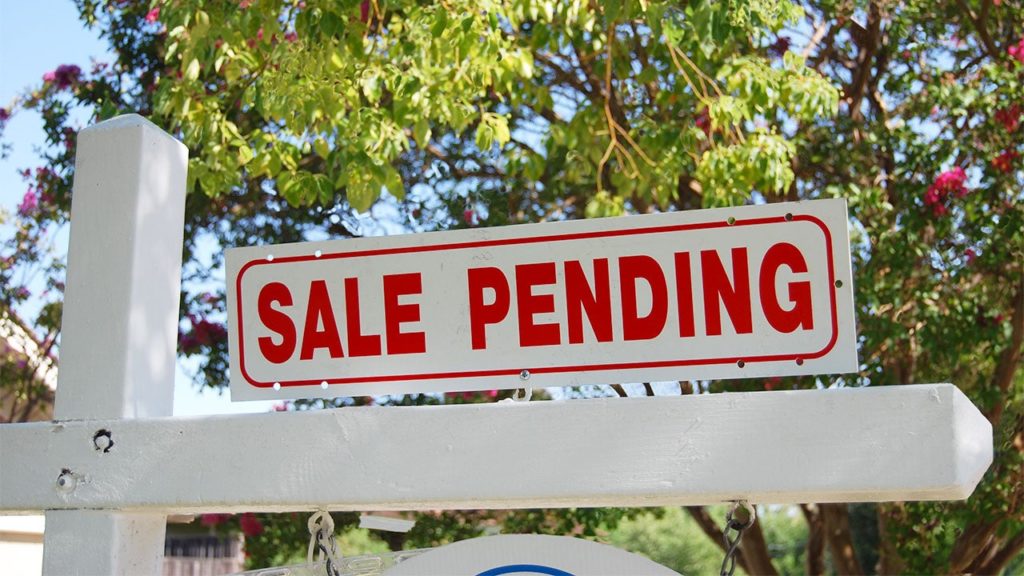Selling your home to get out of debt is usually not your first move. If you have arrived here for advice on selling your home while in extreme debt, we feel for you, and we’ve been there (literally, members of our team have been through this and come out on top). Listing a home for sale to get out of debt is not a quick fix, but taking the proper steps can be beneficial and a huge weight lifted off your shoulders, once you heal from the wounds of giving up your home.
Without sugar-coating this process, here are some tips for selling your home while in debt.
Can you sell a house if you still owe money on it?
There are multiple options for selling a home while you still owe money on it, but the first thing to do is get what amounts to a payoff amount on the home, removing future interest on your mortgage. Other factors come into place when considering selling your home while you still have a mortgage.
HomeLight provides a few details to help if you are in this situation, including unexpected costs to look out for: “You want to watch out for things like prepayment penalties, the fluctuations of the real estate market, and choosing the right lender for your needs, or you’ll risk taking hits to your bottom line.
You should also determine exactly how much you still owe to make sure the sale of your current home pays off the remainder of your mortgage.”
Can I use capital gains to pay off debt?
If you manage to sell your home for a profit, otherwise known as capital gains, there is generally no restriction on how you use these new monies. However, that doesn’t mean that there are no limitations to this type of surplus. Capital gains need to be reported and taxed appropriately before you consider spending this influx of income or nest egg.
Tax rates on short-term capital gains (held for a year or less) are generally the same as ordinary methods of income. Long-term gains are taxed at a significantly lower rate. The best part of this deal: When you sell your primary residence for profit, no tax is due on the first $250,000 of the capital gain. It’s $500,000 if married!
Heads up! If the property on which the capital gains are realized is held by a trust or a retirement account, the terms of the trust may limit how gains are used. If capital gains come from a retirement account, it can be used to retire a second mortgage only when a property is held by the retirement account.

What happens if you sell your house for less than you owe?
If your mortgage is through a bank, you will generally not be allowed to sell your home for less than what is owed on the mortgage, and this is prevented by the bank because the bank must sign off as a co-owner and will not do so.
There are two ways to deal with a home when you are upside down on a mortgage payment: Rent out the home for more than the mortgage amount in order to gain income instead of selling. This is a way of turning the home into property investment for the purpose of debt reduction.
The second option is to request a short sale from the bank or mortgage issuer. In a short sale, the bank will allow you to sell the home, even though it’s worth less than you owe. As an example, if the home sells for the asking price of $285,000 during a short sale, the bank will immediately reduce your debt by that much. But beware; selling your home via short sale will negatively impact your FICO credit score. From Credit.com: “Selling your home in a short sale will cause your credit to drop significantly — up to 160 points, depending on where your score was at the time it hits your reports. It’s important to consider your options carefully before you decide, and be prepared to work over the next several years to re-establish better credit if a short sale is your best option.”
Should I pay off my mortgage before selling my house?
While there are steps that can be taken to sell your home before your mortgage is paid off (detailed above), whether you should pay off your mortgage before selling your house is sometimes not an option. If you have the ability to pay off your mortgage prior to selling your house, this is highly recommended.
The first step is determining if your mortgage is affordable. Use a budget calculator to see if you are in the positive when it comes to your income versus expenses. If after using the budget calculator you discover you are able to pay more towards bills by cutting monthly expenses, you may want to consider the debt snowball payment method as a better option compared to short-selling your home.
Once you have calculated your finances, try deciding whether to sell your home based on this formula from DaveRamsey.com: “Your mortgage payment should be no more than 25% of your monthly take-home pay. If half of your income gets swallowed up by your mortgage every month, it’s a no-brainer. Cutting your housing budget down to size is the only way you’ll ever make progress. Let’s look at an example. Frank and Sheryl Smith bring home $4,000 a month and owe $30,000 in student loans. Their mortgage costs $1,800 a month—a whopping 45% of their take-home pay. At this rate, they can only afford to put $300 a month toward their student loan debt.”
____________________________
If you found our blog looking for financial advice or assistance with credit card debt relief or debt consolidation, call Golden Financial Services today at (866)-376-9846 or info@goldenfs.org. You can check out the rest of our blog here, and do your research on our services here. Let’s talk soon!


